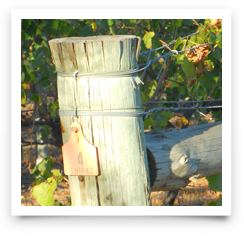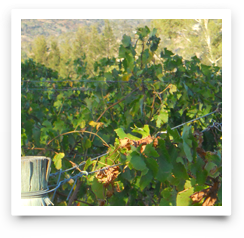 There is a lot of interest in organic and preservative free produce. Unfortunately there is also a lot of confusion about what these terms mean in practice. What most people really want is produce that is healthy, and not tainted with toxins or undesirable chemicals.
There is a lot of interest in organic and preservative free produce. Unfortunately there is also a lot of confusion about what these terms mean in practice. What most people really want is produce that is healthy, and not tainted with toxins or undesirable chemicals.
Organic compounds are those found naturally – dug up, drained, extracted. They may be subject to simple natural processes – dried, burnt, heated, soaked in salt. Synthetic substances are those produced by unnatural means – they would never be found in nature and are the result of a modern industrial process. It does not therefore follow that an organic substance is always “safe” and a synthetic substance “harmful”. So the categorisation between organic and synthetic should be based on naturally occurring verse manufactured as opposed to safe verse harmful.
Wine is a very traditional product, and winemaking predates modern scientific understanding of chemistry and microbiology. Because of this, traditional grape growing and winemaking is what we now describe as organic. In fact it is quite possible to make wine with no additives apart from the grapes themselves, and it is equally possible to grow grapes without applying any compounds whatever to the soil or vines. By the way, the most commonly used preservative in winemaking is sulphur dioxide and it is organic. So organic and preservative free are not the same thing.
The substances that may be used in grape growing and winemaking are controlled. In agriculture all pesticides, fungicides, herbicides and plant growth regulators are “registered” by a federal body. Their registration follows testing and approval, and includes allowable use, and rate and timing of application. In winemaking the responsible body determines permitted processes, additives and minimum standards across all food and beverages. The specific standard for wine is quite draconian and has a very limited number of permitted additives – anything else is off the menu so to speak. The wine industry supports this as it wishes to maintain the traditions of winemaking and not allow wine to become just another highly processed food.
 Grape growers and winemakers may choose to use modern synthetic products to improve their shelf life, production efficiency, yield, allow farming in more margin regions, and so on. Occasionally the use of synthetics is beneficial – for example the use of synthetic herbicides such as Round Up eliminates the need to plough potentially reducing erosion and destabilisation of soil structure. Generally the use of synthetics reduces risk, lowers the cost of production, allows a greater geographic spread of operations, and allows very large scale production. Effectively the use of modern synthetic products is essential in modern commercial large scale grape growing and winemaking.
Grape growers and winemakers may choose to use modern synthetic products to improve their shelf life, production efficiency, yield, allow farming in more margin regions, and so on. Occasionally the use of synthetics is beneficial – for example the use of synthetic herbicides such as Round Up eliminates the need to plough potentially reducing erosion and destabilisation of soil structure. Generally the use of synthetics reduces risk, lowers the cost of production, allows a greater geographic spread of operations, and allows very large scale production. Effectively the use of modern synthetic products is essential in modern commercial large scale grape growing and winemaking.
Small scale high cost grape growers and winemakers such as Faber have the opportunity to employ more or less organic products. They don’t rely on the modern synthetic products to achieve a low cost structure, they may choose to accept a more individual product and to accept greater risk of crop loss and product failure. They may even seek to operate an organic only business. This may be to access that market niche or because they are personally committed to that philosophy. But let’s not believe that their wine is intrinsically more safe or less harmful than anyone else’s. That’s not true.
At Faber we are committed to quality first. We love tradition, but sometimes the use of a modern synthetic product will allow us to maximise our quality and we will use it. Where traditional products give us a quality advantage we will select them. We farm in a region ideally suited to low vineyard inputs. In general the area where we choose modern over natural products is in weed control in the vineyard. We need to maximise the conservation of soil moisture and the best way to do that is by killing weeds with herbicides not ploughs. Otherwise we might well be organic.
